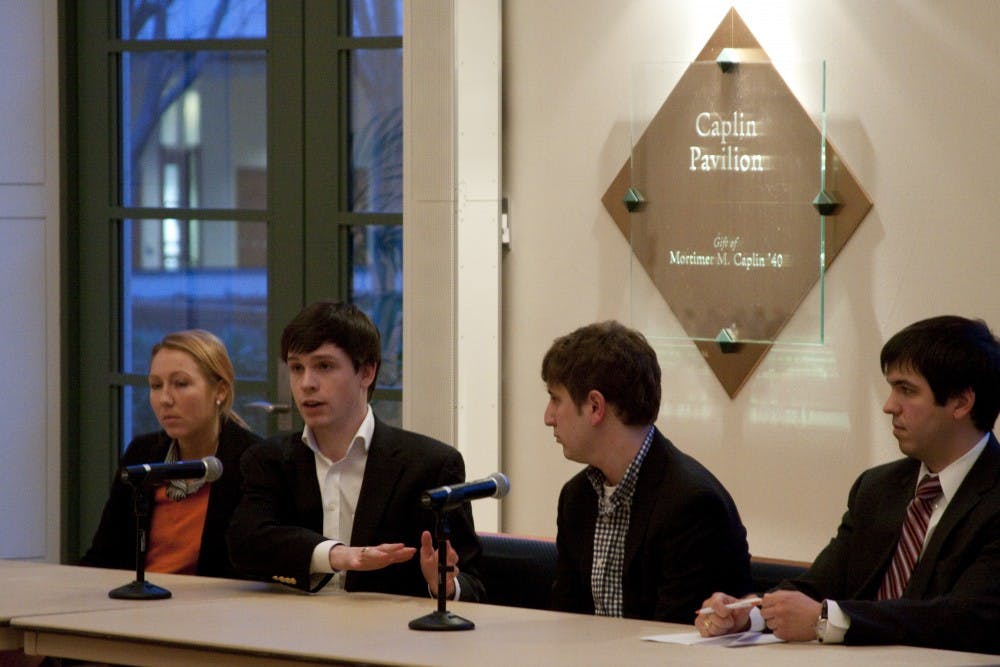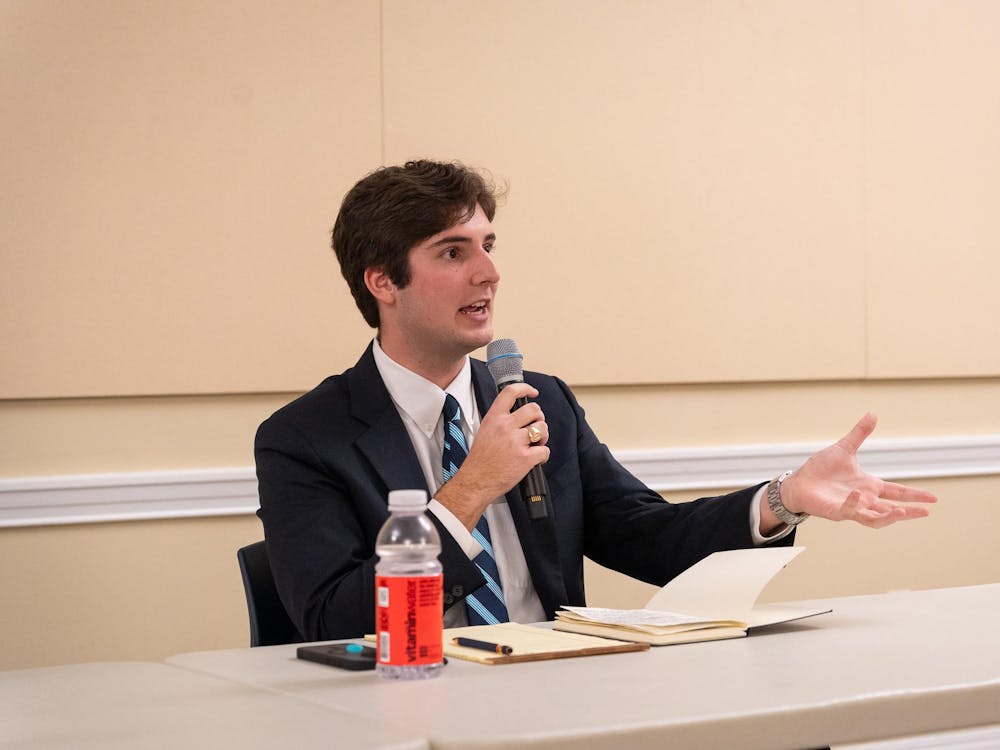Second-year Law student Frank Bellamy submitted a proposed referendum to the University Board of Elections late last week which would incorporate informed retraction into Honor Committee proceedings but would not address the Committee’s proposed jury reform.
UBE must now verify the proposal’s roughly 2,100 signatures to ensure it received the support of 10 percent of the student body. If verified, Bellamy’s amendment will appear on the University-wide ballot Feb. 25-28 alongside the Committee’s proposal. Either proposal must be approved by three-fifths of voters to take effect.
Informed retraction allows a student accused of an honor offense to admit guilt and leave the University for two semesters. Jury reform, which is not included in Bellamy’s proposal, requires that all honor trials be tried before a jury of five Honor Committee members, selected by the vice-chair for trials.
Bellamy said he crafted the proposal to give students a greater choice.
“The proposal is an attempt to sever the two reforms that the Honor Committee is proposing,” Bellamy said. “[Students] should be allowed to vote for the reforms they want and not the reforms they don’t want.”
Bellamy said the two parts of the Committee’s proposal were entirely distinct, so he saw no reason to vote on them together.
Honor Committee Chair Stephen Nash said he thought both parts of the proposal needed to be in place.
“Informed retraction still punishes honest students in the process,” Nash said. “Many other students would be able to inconsistently exploit the process.”
Bellamy said even those who support the Honor reform should still vote for his proposal, since his proposal adds informed retraction to the Honor Committee’s constitution, while the Committee’s proposal designates the informed retraction portion as non-binding, only changing Committee’s bylaws.
“There would be no guarantee that informed retraction would be kept by the Honor Committee [under the Committee’s proposal],” Bellamy said. “The Honor Committee’s referendum is a gauge of student opinion, but it is not binding in any meaningful way.”
The Committee’s proposal says the bylaw changes for informed retraction will only take place on April 1 if the amendment for jury reform is passed by the student body. Nash said that while it would be technically possible for the Committee to later change the bylaws on informed retraction once the jury reform measure passes, in practice they would not — and do not currently — make any changes without substantial student input and a referendum.
The bylaw changes proposed by the Committee detail how students are to be notified of the opportunity to submit an informed retraction, when students must leave the University community, who decides upon the validity of the informed retraction and how a leave of absence due to an honor trial will be indicated on the student’s transcript, among other issues. Bellamy’s proposal includes few of these details.
“I don’t … understand what students will be voting for if they vote for [his proposal],” Nash said. “I think there are several questions left with the informed retraction Mr. Bellamy proposed.”
Nash said the details within the Committee’s proposal, such as allowing students to finish out their semester so as not to disproportionately affect international students and students receiving need-based financial aid, had been perfected during more than 10 years of conversation.
Bellamy’s proposal also unintentionally delays the point in the honor trial process at which a student may file an informed retraction. The Committee’s proposal requires students to submit an informed retraction within seven days of someone in the community filing an honor charge against them. Bellamy’s proposal permits a student “accused of an honor violation” to file an informed retraction within seven days. Current Committee bylaws say a student is “accused” only after a preliminary Honor Committee investigation has been completed following a reported offense.
Bellamy said he had not intended the difference in wording, but he did not have the language of the Honor Committee’s proposal before him when he wrote his amendment.
“I got the language wrong,” Bellamy said. “My presentation of my referendum has always been that it is the same as the Honor Committee’s.”
Though the different wording was not intentional, it could have serious consequences for the application of informed retractions if implemented, Nash said.
“The problem with it being … after an entire investigation is that students aren’t encouraged to do what they think is the right thing or the honorable thing, they’re put in a situation where they … weigh the evidence against them and all these other factors,” Nash said.
Bellamy said he was confident the Committee could amend its bylaws if his proposal passes to ensure his amendment would have the same effect as the Honor Committee’s proposal.







